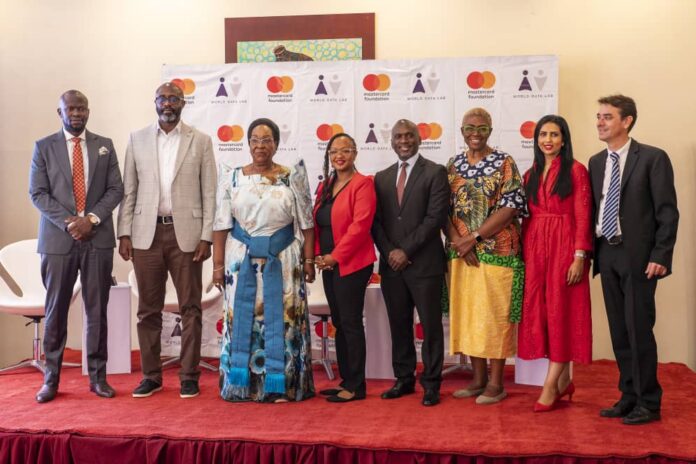
Kampala – In a bid to address the pressing issue of youth unemployment, World Data Lab, in partnership with the Mastercard Foundation, has launched the Africa Youth Employment Clock in Uganda.
This groundbreaking tool provides real-time data and forecasts employment trends up to 2030, offering invaluable insights to policymakers, development actors, and stakeholders in the youth and labor ecosystem.
The launch, which took place on Thursday marks a significant milestone in Uganda’s efforts to create dignified and fulfilling work opportunities for its rapidly growing youth population.
According to World Data Lab projections, Africa’s youth population is expected to increase by an astonishing 100 million between 2023 and 2030, underscoring the urgent need for data-driven solutions.
The Africa Youth Employment Clock is designed to support inclusive labor markets through cutting-edge data modeling and visualization. By monitoring real-time job growth and tracking key variables such as employment status, age, gender, and sector, the Clock provides a comprehensive understanding of Uganda’s labor market.
World Data Lab CEO Wolfgang Fengler emphasized the importance of reliable labor market insights in creating sustainable employment opportunities. “Despite stable employment rates, Uganda faces challenges with a significant portion of the youth workforce in low-paying jobs that limit economic growth and development,” he noted.
Mastercard Foundation Uganda Country Director Adrian Bukenya echoed Fengler’s sentiments, highlighting the Clock’s potential to empower leaders, businesses, and young Ugandans. “With one of Africa’s fastest-growing youth populations, Uganda requires actionable, real-time data to inform decisions on creating dignified and fulfilling work opportunities. This tool will enable us to unlock the full potential of our young people, laying the groundwork for sustainable growth and prosperity for all.”
The Africa Youth Employment Clock draws from surveys and datasets made available by national statistics offices, the International Labour Organization (ILO), and the International Institute for Applied Systems Analysis (IIASA).
This user-friendly, publicly available digital tool can be accessed at www.africayouthjobs.io providing country-level youth employment data for all 54 African states. Sub-national data is currently available for select countries, including Nigeria, Ghana, Kenya, Ethiopia, and Rwanda, with plans to expand to Uganda and Senegal.
World Data Lab’s methodology is peer-reviewed, ensuring consistent and comparable data across countries. By democratizing data and making it accessible and actionable for everyone, the organization aims to drive impactful change and deepen understanding of the complex challenges facing Africa’s youth.
The Mastercard Foundation, a registered Canadian charity and one of the largest foundations in the world, works with visionary organizations to advance education and financial inclusion. Its partnership with World Data Lab demonstrates its commitment to empowering young people in Africa and Indigenous youth in Canada to access dignified and fulfilling work.
The launch of the Africa Youth Employment Clock in Uganda marks a transformative step toward understanding and addressing the employment challenges facing the country’s young workforce.
As Uganda strives to unlock the full potential of its youth, this innovative tool is poised to play a critical role in shaping a brighter future for generations to come.

